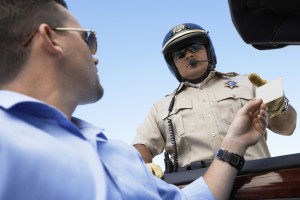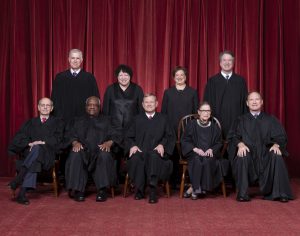 Over the past couple of years, this blog has followed and discussed the United States Supreme Court’s decision in Mitchell v. Wisconsion. While Supreme Court decisions can seem like seismic shifts in the law when they are issued, the reality is it often takes time for their effects to be felt on a practical level. Such is the case with Mitchell. While it was decided over a year-and-a-half ago, it is just now being discussed by Ohio Appellate Courts.
Over the past couple of years, this blog has followed and discussed the United States Supreme Court’s decision in Mitchell v. Wisconsion. While Supreme Court decisions can seem like seismic shifts in the law when they are issued, the reality is it often takes time for their effects to be felt on a practical level. Such is the case with Mitchell. While it was decided over a year-and-a-half ago, it is just now being discussed by Ohio Appellate Courts.
Articles Posted in DUI/OVI Constitutional issues
Appellate Court Rules On Validity Of Traffic Stop Leading To OVI Charges
 DUI cases (called ‘OVI’ in Ohio) are some of the most complicated cases filed in Ohio courts. From field sobriety tests to breath/blood/urine tests, there are many minute and highly technical details that can make or break an OVI defense in court. Often, a seemingly simple but no less important detail can get lost under the mountain of specialized evidence in OVI cases: why did the person get pulled over in the first place? And, more importantly for OVI defense: what degree of evidence does the prosecution need to present to justify that traffic stop?
DUI cases (called ‘OVI’ in Ohio) are some of the most complicated cases filed in Ohio courts. From field sobriety tests to breath/blood/urine tests, there are many minute and highly technical details that can make or break an OVI defense in court. Often, a seemingly simple but no less important detail can get lost under the mountain of specialized evidence in OVI cases: why did the person get pulled over in the first place? And, more importantly for OVI defense: what degree of evidence does the prosecution need to present to justify that traffic stop?
What If An Officer Asks To Search Your Car During a Traffic Stop?
 In my experience as a criminal defense attorney, I have seen countless cases which began as simple traffic stops but escalated quickly into something far more complicated. Those more complicated cases often result from the officer searching my client’s vehicle and finding something illegal. Frequently, the officer’s search is based on the driver’s consent to the search. But what if the officer asks to search the vehicle and the driver doesn’t explicitly say yes or no? This question was answered in a recent appellate decision, and the answer can impact Ohio DUI/OVI cases.
In my experience as a criminal defense attorney, I have seen countless cases which began as simple traffic stops but escalated quickly into something far more complicated. Those more complicated cases often result from the officer searching my client’s vehicle and finding something illegal. Frequently, the officer’s search is based on the driver’s consent to the search. But what if the officer asks to search the vehicle and the driver doesn’t explicitly say yes or no? This question was answered in a recent appellate decision, and the answer can impact Ohio DUI/OVI cases.
Ohio Supreme Court To Decide Legality Of Stops Based On Anonymous Tips
 If another driver becomes angry with you, that driver can easily call the police and report you as a drunk driver. The driver doesn’t have to give a statement to the police. In fact, the allegation can be completely anonymous.
If another driver becomes angry with you, that driver can easily call the police and report you as a drunk driver. The driver doesn’t have to give a statement to the police. In fact, the allegation can be completely anonymous.
Should police officers be permitted to stop you based only on another person’s anonymous tip? That question will be answered by the Ohio Supreme Court, as it recently agreed to hear the case of State v. Tidwell. The case could have broad implications, not for not just OVI cases, but for individuals’ Fourth Amendment protections in general.
Can You Be Pulled Over In Ohio For Someone Else’s Crime?
 Imagine for a minute that your car is in the shop. You have some errands to run, so you borrow someone else’s car. A friend, a family member, a coworker, whomever. As you’re driving to the store, you see a police cruiser activate its lights and sirens to pull you over. You weren’t speeding, you didn’t drive over the lane line, you followed every traffic rule in the book. So why are you being pulled over? The officer walks up to your window and says you were stopped because the officer ran the car’s license plate and learned the registered owner of the car had their license revoked. The officer didn’t make any effort to determine whether that registered owner was actually driving the car: he just saw the revocation and pulled you over.
Imagine for a minute that your car is in the shop. You have some errands to run, so you borrow someone else’s car. A friend, a family member, a coworker, whomever. As you’re driving to the store, you see a police cruiser activate its lights and sirens to pull you over. You weren’t speeding, you didn’t drive over the lane line, you followed every traffic rule in the book. So why are you being pulled over? The officer walks up to your window and says you were stopped because the officer ran the car’s license plate and learned the registered owner of the car had their license revoked. The officer didn’t make any effort to determine whether that registered owner was actually driving the car: he just saw the revocation and pulled you over.
Is the officer allowed to do this?
What Happens When The Government Destroys Evidence In DUI/OVI Cases?
 Destruction of evidence by the government can violate a defendant’s right to due process of law. Due process violations often lead to cases being dismissed. Using dismissal as a remedy is based on the principle that denying a defendant access to evidence can make a trial unfair. This is particularly true when the evidence is ‘exculpatory’: it tends to disprove guilt or is otherwise favorable to the defendant. In DUI cases (called “OVI” cases in Ohio), the evidence often includes video from a police cruiser, a body camera, or a police station. When such a video is destroyed by the government, does the case get dismissed? Like so many questions in the legal world, the answer is:
Destruction of evidence by the government can violate a defendant’s right to due process of law. Due process violations often lead to cases being dismissed. Using dismissal as a remedy is based on the principle that denying a defendant access to evidence can make a trial unfair. This is particularly true when the evidence is ‘exculpatory’: it tends to disprove guilt or is otherwise favorable to the defendant. In DUI cases (called “OVI” cases in Ohio), the evidence often includes video from a police cruiser, a body camera, or a police station. When such a video is destroyed by the government, does the case get dismissed? Like so many questions in the legal world, the answer is:
it depends.
Don’t Be A Target Of DUI / OVI Investigations

You may be more of a target than you think. When you think about people arrested for drunk driving, do you picture a car driving erratically all over the road? That’s a common misconception. Most stops resulting in DUI/OVI charges are for minor offenses: failing to signal, driving a little over the speed limit, crossing a lane line one time. Some are even for non-moving violations: burned-out headlight, no license plate light, expired registration. A case decided last week by the Ohio Supreme Court illustrates how a minor violation can lead to more serious charges.
U.S. Supreme Court Delivers Disappointing DUI Decision
As discusse d previously in this space, we have been eagerly awaiting the Supreme Court’s decision in Mitchell v. Wisconsin. The Court set out to determine whether Wisconsin’s Implied Consent statute requires police to obtain a search warrant before getting a blood sample from an unconscious DUI suspect. The state of Wisconsin argued that Mitchell, through the state’s Implied Consent statute, had already consented to the blood draw, thereby removing the requirement for a warrant. Alternatively, they argued this should simply be viewed as an exercise of the State’s power to imposes conditions on a person’s privilege to operate a vehicle on Wisconsin’s roads.
d previously in this space, we have been eagerly awaiting the Supreme Court’s decision in Mitchell v. Wisconsin. The Court set out to determine whether Wisconsin’s Implied Consent statute requires police to obtain a search warrant before getting a blood sample from an unconscious DUI suspect. The state of Wisconsin argued that Mitchell, through the state’s Implied Consent statute, had already consented to the blood draw, thereby removing the requirement for a warrant. Alternatively, they argued this should simply be viewed as an exercise of the State’s power to imposes conditions on a person’s privilege to operate a vehicle on Wisconsin’s roads.
High Court Hears Oral Argument In Third Case Involving Warrantless Blood Test
 The United States Supreme Court recently heard oral arguments in the case of Mitchell v. Wisconsin. As this blog discussed previously, this the third case in a series of cases dealing with whether the police can take a DUI/OVI suspect’s blood without a search warrant. The questions and statements from the bench during the oral argument may telegraph how each justice views the issue. However, in our experience, it is difficult to predict the outcome of a case based on the oral arguments.
The United States Supreme Court recently heard oral arguments in the case of Mitchell v. Wisconsin. As this blog discussed previously, this the third case in a series of cases dealing with whether the police can take a DUI/OVI suspect’s blood without a search warrant. The questions and statements from the bench during the oral argument may telegraph how each justice views the issue. However, in our experience, it is difficult to predict the outcome of a case based on the oral arguments.
Officer Obtains Urine Test Result From Nurse: DUI Dismissed
 Brynn Campbell was involved in a head on-crash which killed the 83-year-old woman driving the other car. Campbell was taken to the hospital, and hospital staff performed a urine test. Although Campbell showed no obvious signs of impairment, a police officer went to the hospital and asked the nurse for the urine test results. The results showed Campbell’s alcohol level was well over the limit, according to the Global News. The officer then obtained a search warrant to obtain Campbell’s urine samples and have them tested. Campbell was charged with vehicular homicide. She was acquitted by the trial court, and the prosecution appealed.
Brynn Campbell was involved in a head on-crash which killed the 83-year-old woman driving the other car. Campbell was taken to the hospital, and hospital staff performed a urine test. Although Campbell showed no obvious signs of impairment, a police officer went to the hospital and asked the nurse for the urine test results. The results showed Campbell’s alcohol level was well over the limit, according to the Global News. The officer then obtained a search warrant to obtain Campbell’s urine samples and have them tested. Campbell was charged with vehicular homicide. She was acquitted by the trial court, and the prosecution appealed.
 Columbus OVI/DUI Attorney Blog
Columbus OVI/DUI Attorney Blog

